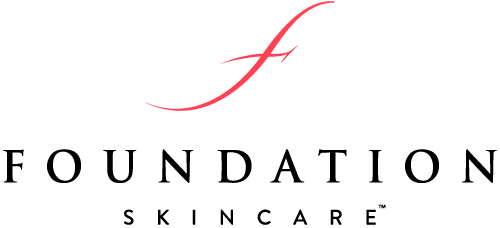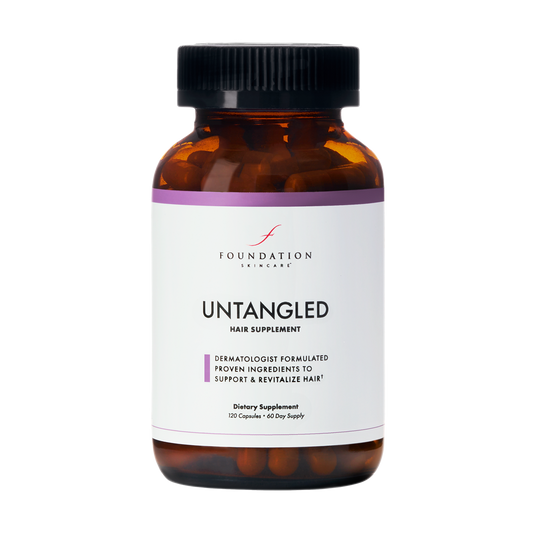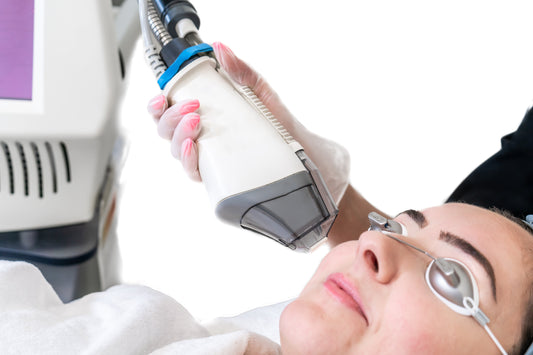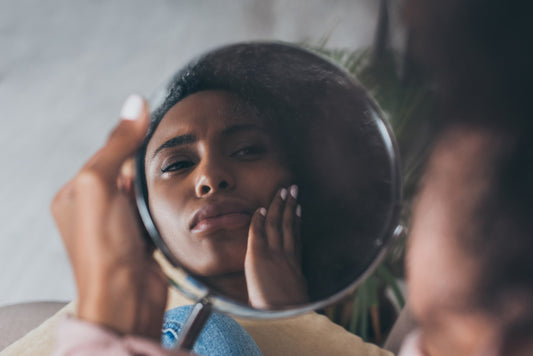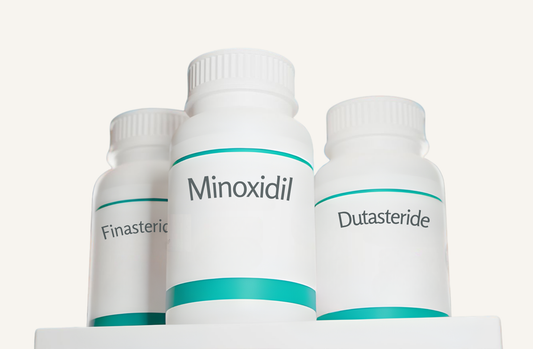Finding more hair in the shower drain or your hairbrush? You’re not alone. More than 50 percent of postmenopausal women have experienced hair loss. The good news is that you may prevent or slow hair loss through diet. It turns out that when you nourish your body properly, you also protect your hair.
What is Perimenopause?
Perimenopause is the time between when your periods become irregular and when they stop completely. During this time, you experience decreasing levels of estrogen and increasing levels of androgens. This imbalance of these reproductive health hormones can impact your body in several ways, from hot flashes to dry skin to hair loss .2
Estrogen, Adrogrens, and Your Hair
First, let’s get some hair facts out of the way. Everyone loses hair daily. Normal hair loss is between 50-100 hairs a day, but losing more than 100 hairs a day consistently for more than two weeks can indicate a problem .3
Hair has its own lifecycle:
- The growing (anagen) phase lasts between 3 -10 years. 80-90 percent of hair follicles are in this stage.
- The transition (catagen) stage lasts 2-3 weeks. Only 5 percent of hair follicles are in this stage.
- The resting and shedding (telegen) stage lasts 9 months, affecting 10-15 percent of hair follicles .4
Estrogen plays a big role in extending the growth stage by increasing the number of cells that protect hair follicles from environmental damage, including heat, UV exposure, bacteria, and viruses .5
Androgens help regulate hair growth and sebum production, an oily substance that moisturizes and protects your skin .5,6
Additionally, as you age, blood flow to your hair follicles decreases, limiting access to nutrients that hydrate and nourish the scalp and fight breakage .3
Put it together and perimenopause can result in thinning hair, loss of volume, and changes to hair texture. Oh, my!
How Vitamins Prevent or Slow Hair Loss
Consuming the right vitamins during perimenopause can help counteract the negative aspects of the hormonal imbalance, nourishing your hair and helping it grow.
Here’s why:
Your hair is made up mostly of keratin, a protein that gives it strength, flexibility, and elasticity. Studies show that certain amino acids, compounds found in protein-rich foods, stimulate keratin production, impacting the rate of hair growth and the diameter, shape, and volume of the hair follicle .2
Conversely, processed foods and simple sugars can cause inflammation and increased insulin levels that can lower the blood flow to your hair follicles.
So eating a diet rich in vitamins will help you and your hair stay healthy.
Most Valuable Vitamins
Adjusting your diet to prevent or slow hair loss can seem daunting, but it doesn’t have to be. Focus on these key vitamins and minerals to stimulate hair growth and keep your scalp moisturized.
Vitamin A:2
Stimulates the production of sebum, helping moisturize the scalp and hair, keeping it from falling out. Too much can cause hair loss so it is better to get it from fruits and vegetables instead of supplements.
- Recommended daily intake: 700 micrograms6
- Good sources: Leafy greens, orange and yellow vegetables, milk, tomatoes, eggs, fortified foods
Vitamin C:2
Required for the production of the protein collagen, essential in the creation of the hair shaft. You can get what you need from fruits and vegetables.
- Recommended daily intake: 75 micrograms7
- Sources: Leafy greens (spinach, kale), oranges, strawberries
Vitamin D:2
Encourages the growth of hair follicles and hair condition. You can get all you need by going outside with arms and/or legs exposed, depending on where you live and the season.
- Recommended daily intake: 15 micrograms8
- Sources: Exposure to UV rays, fatty fish, mushrooms, fortified foods
Zinc:2
Important in hair follicle growth. Deficiencies can cause excessive hair loss and thinning, especially if you take a diuretic, but a supplement is not needed unless you know you have a deficiency.
- Recommended daily intake: 8 micrograms9
- Sources: Shellfish, beef, poultry, pork, legumes, nuts, whole grains
Biotin (vitamin B7):2
Plays a role in moisturizing and promoting hair growth. Deficiency can lead to hair loss.
-
Recommended daily intake: 30 micrograms10
-
Sources: Beef liver, salmon, eggs, avocado, pork, sweet potatoes, nuts, seeds, fortified foods
Saw Palmetto:11
A herbal remedy that may improve hair quality and volume. Small randomized clinical trials show 60 percent improvement in hair quality, 27 percent increase in total hair count, and 83 percent improvement in hair density in patients with androgenic alopecia (male or female pattern baldness) and telegen effluvium (acute hair shedding caused by stress, hormones, or medications).
- Recommended daily intake: 100-320 micrograms12
- Sources: Topical or oral supplements
Essential Fatty Acids:13
Contributes to moisturizing the scalp and keeping hair from falling out. Deficiencies can affect hair hydration and formation of the hair bulb.
- Recommended daily intake: 1.1 grams14
- Sources: Salmon, mackerel, tuna, herring, sardines, flax seeds, chia seeds, walnuts, plant oils, fortified foods such as milk and eggs
As you can see, hair health during perimenopause depends on a vitamin-rich diet. Keeping up with and regulating all the vitamins can be difficult so the good news is you can get all you need in Untangled, a science-backed hair supplement that won’t overload your vitamin intake even if you take a multivitamin. You’ll see new hair growth in 30-90 days with minimal-to-no shedding when you stop taking it.
Additionally, you should drink plenty of water, avoid stress, and be kind to your hair and scalp by not using harsh cosmetic and hair treatments .15 Speak to your doctor about any excessive hair loss, to rule out conditions such as alopecia.
Find more tips and resources on maintaining healthy hair and skin in the FS Blog.
UnTangled Hair Supplement
• Reduces shedding & thinning
• Strengthens hair follicles
Sale price
$65
References:
-
https://www.nbcnews.com/health/health-news/female-hair-loss-menopause-treatment-study-rcna16389
-
https://www.ncbi.nlm.nih.gov/pmc/articles/PMC4828511/
-
https://www.mayoclinic.org/diseases-conditions/hair-loss/symptoms-causes/syc-20372926
-
https://wimpoleclinic.com/blog/perimenopause-hair-loss-symptoms-prevention-and-treatment/
-
https://www.ncbi.nlm.nih.gov/pmc/articles/PMC10669803/
-
https://www.hsph.harvard.edu/nutritionsource/vitamin-a
-
https://ods.od.nih.gov/factsheets/VitaminC-HealthProfessional/
-
https://ods.od.nih.gov/factsheets/VitaminD-Consumer/
-
https://www.hsph.harvard.edu/nutritionsource/zinc
-
https://www.hsph.harvard.edu/nutritionsource/biotin-vitamin-b7/
-
https://pubmed.ncbi.nlm.nih.gov/33313047/
-
https://www.healthline.com/health/saw-palmetto-hair-loss
-
https://www.medicalnewstoday.com/articles/omega-3-for-hair
-
https://ods.od.nih.gov/factsheets/Omega3FattyAcids-Consumer/
-
https://www.healthline.com/health/menopause/hair-loss
